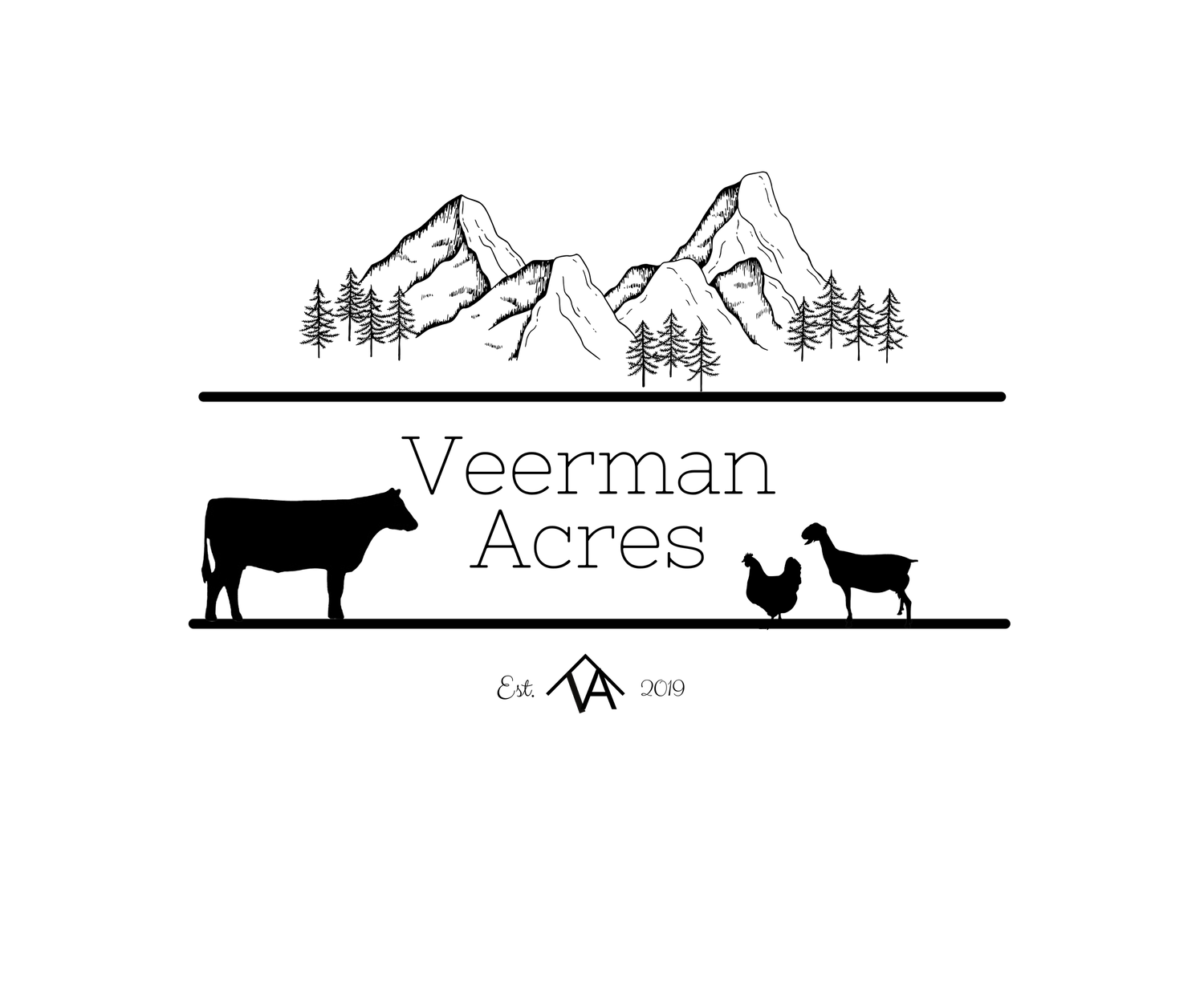Regenerative Agriculture: What we are doing at Veerman Acres
Veerman Acres has completed an Environmental Farm Plan (EFP certified) and we are always striving to improve our land management practices.
Here are some ways we implement sustainable agriculture on our ranch:
Grazing Management: Rotational Grazing
We practice rotational grazing at Veerman Acres, utilizing portable electric nets with a solar powered energizer. Rotational grazing involves frequently rotating livestock to different areas of a pasture (we move every 3 days or so depending on stocking rate in each group and size of pasture area). Rotational grazing has many benefits:
Improves soil with carbon sequestration
Reduces emissions
Prevents overgrazing
Keeps parasite loads low in the herd
Improves forage quality and regrowth
Rotational grazing is management intensive but as a producer we reap the benefits!
Targeting Grazing for Noxious Weed Control
Targeted grazing uses goats to control unwanted vegetation in a natural sustainable environmentally friendly manner.
Goats have a digestive system that will break down seed, and once consumed and expelled will leave seeds that will not germinate.
Some examples of noxious weeds in Alberta that goats can consume are Leafy spurge, Hawkweed, Knapweed, Thistle, Chamomile, Sow thistle, Oxide Daisy, Brome, Common Mullein, Toad Flax, and Dandelions.
Vegetation management focuses on improving landscape, removing undesirable or invasive weeds. Goat targeted grazing has been shown to reduce wildfire risk, remove noxious/invasive weeds and improve ecosystems by eliminating vegetation that is competitive with natural plant growth.
Goats provide regenerative practice to landscapes, creating a healthy protein, rich in nitrogen, phosphorus, and potassium as well as they deposit nutrients into the ground feeding soil biology. Herbicides damage soil life, while goats provide sustenance.
Goats are an effective resource to help control noxious weeds in Alberta. An area takes a minimum of three years to effectively notice a difference in perennial herbaceous weeds. Affected areas may take longer, it's up to the owner to modify their grazing strategy when problems occur. The main role of goats in targeted grazing are:
Problem prevention
Converting weeds to feeds
Ecosystem restoration
Noxious weed control
Natural and Biological Fly Control: Fly Predators
High concentrations of flies cause both physical annoyances to humans and livestock, as well as posing a significant health concern. We use a combination of fly predators (tiny parasitic wasps that are not harmful to humans, livestock or pets) to kill the emerging flies and fly traps to reduce the number of adult flies. Using this approach, coupled with an effective manure-handling program, provide us with excellent, cost effective fly control without the need to use chemical sprays.
Compost Bedding Pack Barn
At our farm, we utilize a compost bedding pack system in our well ventilated barn during colder months/off-pasture season. This offers many benefits to our herd including improved comfort and maximized udder and foot health. Compost is a source of natural heat which dries the bedding material and provides a soft and dry place to rest. We clean out the pack once a year. A compost bedding pack saves bedding costs, labor output and is an environmentally friendly option for producers.
